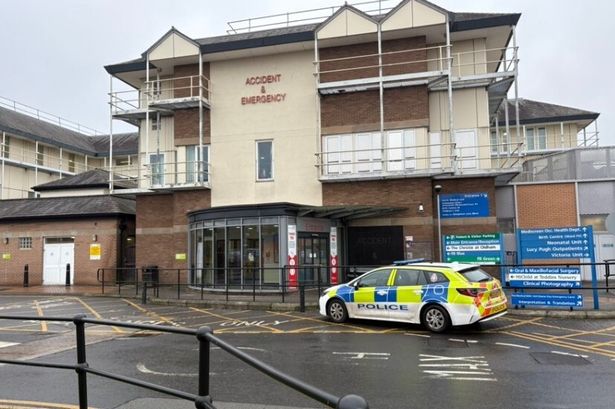The incident at the Royal Oldham Hospital’s Accident and Emergency department on Saturday night has left the community and healthcare professionals reeling. A nurse in her 50s, a dedicated member of the hospital’s staff, suffered severe injuries described as “life-changing” during an altercation. While the specifics of the incident remain shrouded in an ongoing police investigation, the gravity of the situation is underscored by the subsequent arrest made by authorities. This event has not only impacted the nurse’s life irrevocably but has also cast a long shadow over the hospital environment, raising concerns about the safety and well-being of healthcare workers.
The term “life-changing injuries” signifies the profound and lasting impact on the nurse’s physical and mental health. These injuries could encompass a wide range of possibilities, from severe physical trauma requiring extensive rehabilitation to deep psychological scars necessitating ongoing therapy. The long-term consequences may include permanent disability, chronic pain, emotional distress, and a diminished quality of life. The incident highlights the vulnerability of healthcare professionals who are often exposed to challenging and unpredictable situations, sometimes involving individuals experiencing distress or exhibiting aggressive behavior.
The arrest made by police following the incident suggests potential criminal activity. While the details of the charges and the individual arrested have not been publicly disclosed, the arrest indicates that authorities believe a crime has been committed. The ongoing investigation will seek to determine the precise sequence of events leading to the nurse’s injuries and establish the culpability of the individual arrested. The legal process will unfold in due course, aiming to hold the responsible party accountable for their actions and provide justice for the injured nurse.
The incident raises critical questions about the safety protocols and security measures in place at Royal Oldham Hospital’s A&E department. Hospitals, particularly emergency rooms, are often high-stress environments where staff members regularly interact with patients experiencing physical and emotional distress. While verbal and even physical aggression can occur, healthcare professionals should be able to perform their duties without fear of suffering life-altering injuries. This incident necessitates a thorough review of existing security measures to identify any gaps and implement improvements to prevent similar incidents in the future. This review might encompass aspects such as staffing levels, security personnel presence, training for staff in de-escalation techniques, and the availability of panic alarms or other emergency communication systems.
The repercussions of this incident extend far beyond the immediate victim and the hospital itself. It underscores a broader societal issue concerning the safety and respect afforded to healthcare professionals. Nurses, doctors, and other healthcare workers are on the front lines of patient care, providing essential services to the community. They deserve a safe and supportive working environment free from the threat of violence or aggression. This incident serves as a stark reminder of the need for increased public awareness and understanding of the challenges faced by healthcare providers and the importance of treating them with respect and appreciation. It also highlights the need for greater societal support for mental health services, as many instances of aggression in healthcare settings stem from individuals experiencing mental health crises.
Moving forward, a multifaceted approach is required to address the complex issues raised by this incident. A comprehensive review of security protocols at Royal Oldham Hospital should be undertaken to ensure a safer working environment for its staff. Furthermore, broader societal discussions about the value and protection of healthcare workers are crucial. Promoting a culture of respect and appreciation for those who dedicate their lives to caring for others is paramount. Finally, continued investment in mental health services and resources is essential to address the root causes of some of the challenges faced by healthcare professionals in emergency settings. This tragic event serves as a call to action for both immediate improvements in hospital security and long-term societal changes that prioritize the safety and well-being of those who provide vital healthcare services.














